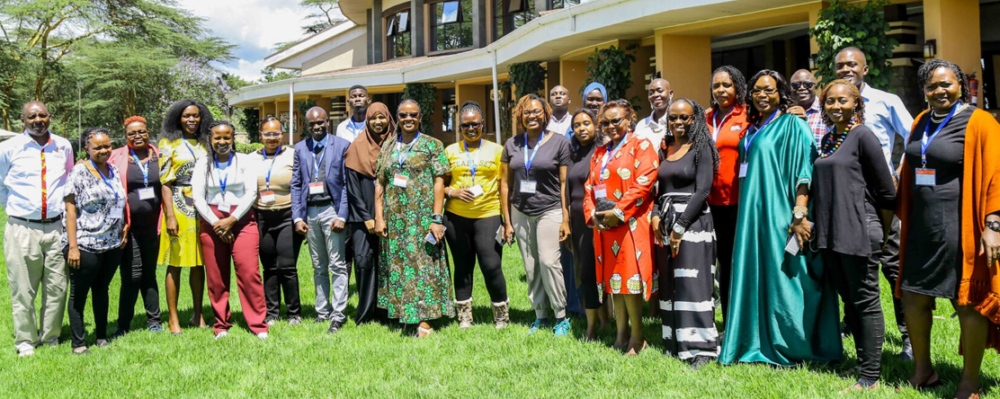
Press Release
New Vaginal Ring can Reduce Women’s HIV Rates, Will Next Combine with Contraception as MPT
-
Focus Areas
Data, Technology & Innovation -
Issues
Reproductive & Sexual Health -
Programs
CAMI Health
Sacramento, CA: The dapivirine ring, a new option for women to prevent HIV, has proven to be safe and effective at reducing HIV risks in women according to clinical trial results (ASPIRE and The Ring Study) released today at the Conference on Retroviruses and Opportunistic Infections (CROI) in Boston. The strong findings are welcome news for women around the world, who will soon have a new option alongside condoms and PrEP to prevent HIV. The news is also hopeful for the development of MPTs (Multipurpose Prevention Technologies), new sexual and reproductive health prevention that deliver HIV prevention, other STI prevention, and contraception in varied combinations.
The two parallel clinical trials tested the efficacy of a silicone ring infused with the antiretroviral (ARV) drug dapivirine and found it can cut the risk of HIV in half for women who use it. The dapivirine ring is a novel use of the silicone ring, which has to date only been used to deliver contraception, and is now poised to offer women a new option for HIV prevention. Women can insert the rings themselves and can replace them monthly. It joins a number of other ring designs infused with ARVs that are currently in clinical trials.
“The study findings tell us that the dapivirine ring has safely and effectively lowered women’s risk of HIV acquisition,” said Dr. Thesla Palanee-Phillips, the Director of Clinical Trials at Wits Reproductive Health & HIV Institute, and the Co-Principal Investigator of the ASPIRE Study. “Expanding HIV prevention options is important for women globally. These results also highlight the potential for the ring to be considered in future studies as a delivery method for HIV prevention interventions in combination with contraceptives. A number of studies indicate that women would prefer HIV prevention delivered with a contraceptive because family planning is less stigmatized than HIV prevention. Therefore, a combination form may be more acceptable in the context of their lives, and impact adherence particularly among younger women who are the most vulnerable. It is therefore imperative to continue research and investment in this important field of MPTs.”
“In addition to offering women a new way to prevent HIV, the dapivirine ring is also contributing to the MPT field,” said Dr. Bethany Young Holt, Director of the Initiative for MPTs (IMPT), the international collaboration of researchers, funders, and advocates propelling MPTs. “The ring had the greatest impact among women over 21, whose HIV risk was reduced by half. The findings that younger women experienced less benefit should compel investment in research on young women’s preferences and use of prevention in the context of their lives. We are excited about the next steps for ring research, which will deliver dapivirine for HIV prevention with contraception as an MPT to address the interlinked risks faced by so many women.”
“The promising results from the dapivirine ring trials provide new hope for women who need new options to protect themselves from HIV,” said Dr. Zeda Rosenberg, CEO of IPM, the non-profit developer of the ring. “We are encouraged by the positive findings from two parallel studies showing that the monthly ring can help reduce HIV risk. IPM is committed to learning all we can from these studies and working with partners to determine how the ring may fit into HIV prevention efforts. IPM is also leveraging the innovative ring technology to develop other products for women’s health, including a three-month dapivirine-contraceptive ring.”
Although significant strides have been made to curb HIV infections, HIV remains the leading cause of death among women of reproductive age, with risks most dramatic in Sub-Saharan Africa, where women constitute 58% of all people living with HIV and where almost 62% of all new HIV infections among adolescents occurred among adolescent girls. At the same time, women also face connected risks related to unintended pregnancies, which account for half of the world’s pregnancies.
To date, the condom has been the only method that offers simultaneous prevention and its use is low (8% among stable couples) and often unrealistic for women.
MPTs, which will offer varied combinations of contraception with HIV and other STI prevention, will allow women to delay childbearing and advance their education while avoiding HIV and other STIs that can cause, if untreated, infertility and cancers. Women who are healthy are more likely to have healthy families.
The IMPT is working with the U.S. Agency for International Development (USAID) and other agencies to enhance the integration of social research into the rigorous technical product development process so that we can better understand and predict young women’s use of prevention products in order to inform product development.
###
The IMPT is a project of CAMI Health, which is housed at the Public Health Institute.
Links to the two studies: ASPIRE Study and The Ring Study
To arrange interviews or receive more information about MPTs, please contact Laura Vyda at (510) 387-1739, LVyda@Cami-health.org, or Kathryn Stewart at (530) 448-2050, kstewart@cami-health.org.
More Updates
Work With Us
You change the world. We do the rest. Explore fiscal sponsorship at PHI.
Support Us
Together, we can accelerate our response to public health’s most critical issues.
Find Employment
Begin your career at the Public Health Institute.



